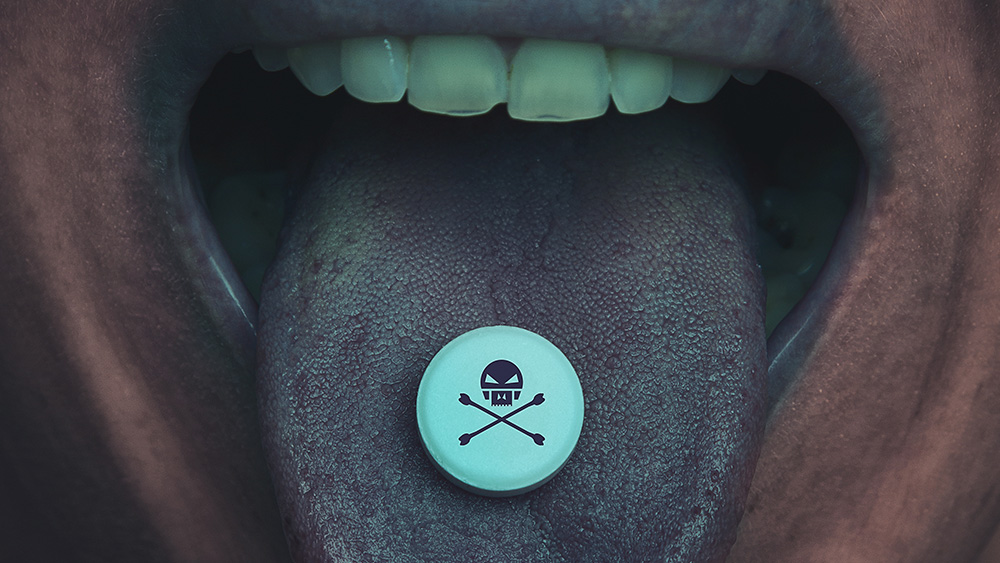From bad to worse: What are the side effects of mixing alcohol and antibiotics?
11/14/2019 / By Edsel Cook

When consumed on their own, alcohol and antibiotic pharmaceutical drugs cause adverse effects on human health. It stands to reason that taking both substances together worsens those side effects.
Nausea is a side effect shared by antibiotics and alcohol. People who take pharmaceutical drugs grow queasy because the harsh chemicals affect their gastrointestinal system.
Drinkers, on the other hand, experience nausea from acetaldehyde, the toxic byproduct produced when the liver breaks down alcohol. Alcohol also interacts with some classes of antibiotics.
Tetracyclines get prescribed for many bacterial infections. This class of antibiotics includes doxycycline and minocycline. Alcohol has negative interactions with both of these common pharmaceutical drugs.
Drinking alcohol hastens the processes that expel doxycycline from the body. As a result, the antibiotic doesn’t stay long enough to achieve its intended effects.
Minocycline may cause liver toxicity. Given that alcohol also harms the liver, patients must avoid combining the two substances. (Related: Seaweed forests hold key to overcoming antibiotic resistance, says study.)
The effects of alcohol on oxazolidinone and sulfonamide
Healthcare specialists prescribe the oxazolidinone class of antibiotics for abdominal, lung, skin, and urinary tract infections. One of the best-known examples is linezolid.
In addition to its antibiotic effect, linezolid hampers the effectiveness of monoamine oxidase-A and monoamine oxidase-B. These enzymes break down a chemical compound called tyramine, which is present in red wine and tap beers. It also appears in strong cheeses, smoked meats, and other food products.
Its effects vary from person to person, but at its worst, high tyramine levels may cause coma, cardiorespiratory depression, rigidity and spasms in muscles, and seizures.
Healthcare professionals give sulfonamide antibiotics to patients with abdominal, respiratory, and urinary tract infections. A widely used example is Septra, a combination of two different pharmaceutical drugs – sulfamethoxazole and trimethoprim.
Sulfamethoxazole and trimethoprim affect the metabolism of folic acid in bacterial cells. This disruptive effect gives them their antibiotic property. However, trimethoprim may also affect human cells. When this happens, the health of the patient suffers.
Some people have deficient levels of folic acid. Taking the sulfonamide antibiotic may reduce their vitamin concentrations even further.
Regular alcohol drinkers and alcoholics also suffer from low levels of folic acid. They, too, must avoid taking sulfamethoxazole and trimethoprim.
Alcohol amplifies the harmful effects of fluoroquinolone and nitroimidazole
Fluoroquinolone antibiotics recently got upbraided for their severe side effects on mental health. The Food and Drug Administration (FDA) slapped new safety warnings on this class.
Fluoroquinolones may cause agitation, confusion, disorientation, loss of memory, low attention span, and nervousness. Experts warn that drinking alcohol may make these adverse effects even worse.
Patients who take fluoroquinolone antibiotics may undergo seizure attacks. If a person has a history of seizures, he is much more vulnerable to an attack.
Alcohol makes seizures more likely, so downing fluoroquinolone antibiotics with a glass of wine is dangerous. Furthermore, regular drinking may cause adverse effects in the brain.
Patients with anaerobic bacterial infections get prescribed with nitroimidazole antibiotics. This class of pharmaceutical drugs treat abdominal infections and sexually transmitted diseases.
Metronidazole is a prominent example of nitroimidazole antibiotics with significant side effects. It stops the activity of aldehyde dehydrogenase, an enzyme that helps the body break down alcohol. By inhibiting aldehyde dehydrogenase, the pharmaceutical drug allows acetaldehyde to build up in the blood. People with high levels of acetaldehyde experience the toxic effects of alcohol.
Taking alcohol and metronidazole together may cause episodes of abdominal cramps, headaches, nausea, and vomiting.
Finally, binge-drinking and heavy drinking of alcohol may weaken the immune system. Regular drinkers and alcoholics are more likely to develop infections, but their drinking may put them in greater danger once they take antibiotics.
Sources include:
Tagged Under: Alcohol, alcohol addiction, antibiotics, Big Pharma, brain health, folic acid, harmful medicine, pharmaceutical drugs, Prescription drugs, toxic substances
RECENT NEWS & ARTICLES
COPYRIGHT © 2017 ADDICTION NEWS



















